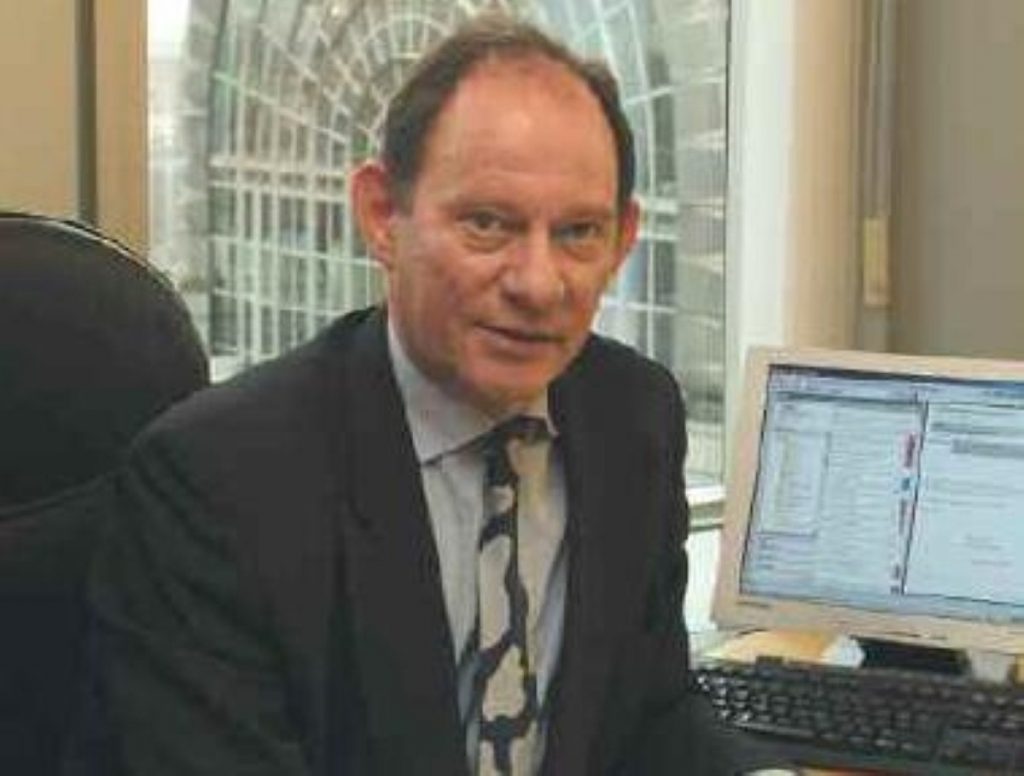Comment: Wen Jiabao’s smile shields cruelty
When David Cameron shakes the hand of Chinese premier Wen Jiabao, he shakes the hand of a man who rules the world's largest remaining tyranny. Although two of my reformist contacts in China were released from prison in the last few days, these gestures cannot disguise a brutal reality.
By Edward McMillan-Scott
The release of the brilliant artist Ai Weiwei and the environmentalist Hu Jia point up the continued imprisonment of not only their dissident friends, but millions of other political or religious prisoners.
Hu Jia's only crime was to speak openly about the corruption and degradation of his city before the Beijing Olympics. He did so by telephone from his flat to public meetings I had organised in London and Brussels. He knew the risk but he told me that he was speaking out on behalf of those who had been silenced by the regime.


Hu was finally convicted of 'subversion' after he gave evidence to the European parliament's human rights committee in November 2007. It was little consolation that we awarded him our Sakharov Prize for freedom of expression in 2008: he was in prison, suffering increasingly from a liver disease, for which he was refused treatment.
The release of Ai Weiwei and Hu Jia come as China's premier Wen visits Europe; he has been to Hungary (currently in the presidency of the EU) and will also visit Berlin. In recent months the regime has rounded up hundreds of activists after their fears that the spirit of Arab Spring – the Jasmine Revolution – might filter through: it has.
Sunflower Seeds artist Ai Weiwei, released after 80 days in jail, was the most high profile victim. Like Hu Jia, Ai will not speak out as he did before his arrest. There were reports that Ai had been forced to watch video of the brutal torture of their friend, Christian human rights lawyer Gao Zhisheng.
When I met Ai Weiwei in November, he said simply that the continued disappearance of Gao since last April would be "impossible" in a civilised country. But China today is not civilised; the world's most populous country remains what it has been since 1949, ruled by a brutal, paranoid and corrupt elite parading itself as a political party. Gao, during a period of house arrest, told me on a borrowed mobile that he had twice tried to commit suicide after torture.
Suicide – a heinous sin in China – is especially so for a Christian. I am not religious, but Gao's profound Christianity is his succour.
Of course Cameron and Wen must talk about trade. To put China's rise at risk would harm not only our interests, but also the millions of Chinese who are yet to share its new prosperity.
However, we should be under no illusion: the regime uses terror to keep its people under control. Between seven and eight million people are held in hundreds of camps and prisons across China's gulag, the laogai, many undergoing ‘education through labour' and torture.
During my last visit to Beijing, in May 2006, I was in contact with Hu Jia and Gao, but did not meet them for their own safety. The other Chinese I had met – former prisoners of conscience – had been immediately arrested.
I learned this week that one of them, Cao Dong, whose wife was also imprisoned, has been kept in prison although his sentence is up. He is in Tiansui jail in Northern China and he has been on hunger strike in protest at his continued torture. I know the names of those involved in this inhumane treatment and one day they will face justice, as the former rulers in reforming Arab countries do today.
Cao Dong and his wife were Falun Gong practitioners, some of between 70 and 100 million who used to do the Buddha school spiritual exercises and who make up two thirds of those undergoing Reeducation Through Labour, according to the former UN torture rapporteur, Dr Manfred Nowak. I have seen a list of more than 3,000 of them who have died under torture since the persecution began in 1999. It was Gao Zhisheng's investigation of this barbaric inquisition that marked him out for special treatment.
Last week, Jan Karski's detailed account was finally published of his attempts to convince the Allies in 1942 of the Nazi persecution of the Jews and the death camps, which he had witnessed. US judge Felix Frankfurter said: "I did not say this young man was lying. I said I am unable to believe him. There is a difference."
One day the world will see the hidden face of China, and not just that of the smiling 'reformist' Wen Jiabao.
Edward McMillan-Scott (LibDem, Yorkshire & Humber) is European Parliament Vice-President for Democracy and Human Rights. A former leader of the Conservative MEPs, he joined the Lib Dems in 2010 after protesting at David Cameron's new EU alliance.
The opinions in politics.co.uk's Comment and Analysis section are those of the author and are no reflection of the views of the website or its owners.

